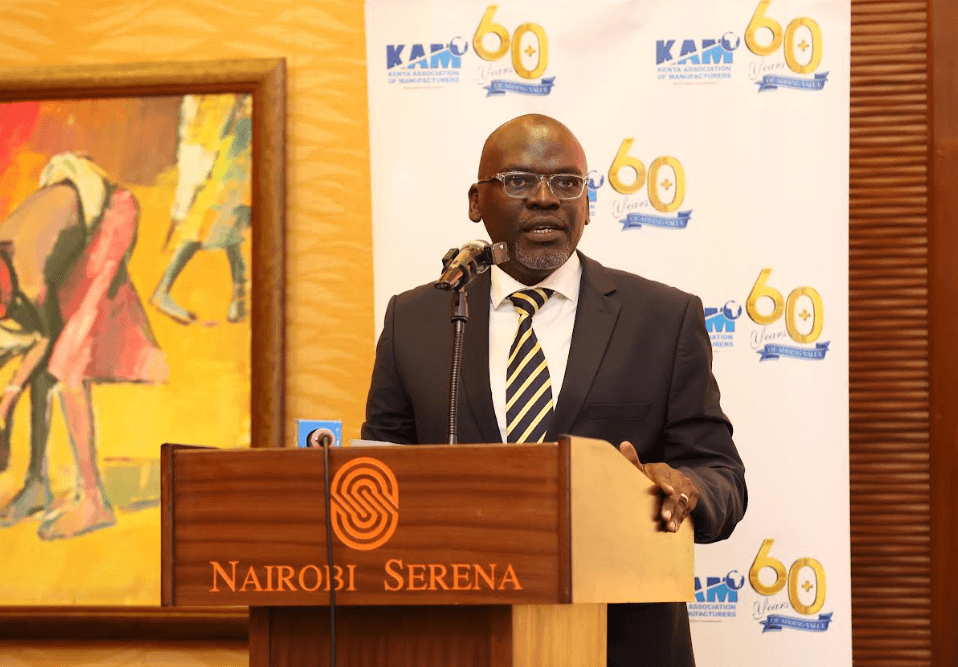The Swiss firm contracted to set up the stamp duty platform for the Kenya Revenue Authority has now come out to defend it saying the contract was above board.
SICPA SA has dismissed claims that billions of shillings are being siphoned through the Excise Goods Management System (EGMS), the security system it is providing for excisable goods in Kenya.
It also defended its contract with Kenya Revenue Authority (KRA), and operations in Kenya, saying all dealings are within the country’s laws and regulations, even as the details of the contract remain scanty.
The Public Investment Committee on Commercial Affairs and Energy member Opiyo Wandayi last week raised concern over what he termed a “Stampgate scandal” involving Sh160 billion at KRA.
In a press statement, the minority leader in the National Assembly and Ugunja MP poked holes on the KRA-SICPA contract, which the taxman has been using as a track and trace solution in revenue collection.
According to Wandayi, KRA has issued three controversial contracts to SICPA between 2011 and 2015, which have never been made public.
KRA has however defended the system which was successfully implemented on alcoholic drinks and cigarettes in 2013, helping increase excise tax from Sh700 million to over Sh5.6 billion annually.
The system was later expanded to cover bottled water, juices, energy drinks, soda and other non-alcoholic drinks in 2017.
Yesterday, the Swiss provider dismissed Wandayi’s claims terming it it "untrue and detrimental" to SICPA’s reputation of nearly 100 years, since its establishment in 1927.
The firm has a global presence and serves clients in 180 countries, including Kenya, with offices in 33 countries.
"Like it has done in all its dealings around the world, SICPA SA entered into its contract with KRA within the confines of the laws of Kenya,” Strategic Communications Director Curtis Vaisse said in a statement.
He said the products and services deployed by SICPA SA in the performance of its contract with KRA have gone a long way in supporting the fight against fraud and illicit trade.
KRA has been upgrading to new generation stamps to curb counterfeiting and seal revenue leaks.
"We continue to review the security features to ensure we are using the latest technology available,” said Linstrom Kinoti, project manager, Excisable Goods Management System (EGMS).
SICPA SA dismissed claims that it has been mentioned in more than 13 countries on allegations of corruption.
“SICPA has always co-operated with authorities in all the countries in which it operates in order to demonstrate its commitment to and ensure adherence to the law,” said Vaisse.
There is concern that the Kenyan retail market is flooded with fake excise duty stamps fuelling growth of illicit trade, mainly on excisable goods.
The rise in fake stamps (imported) was reported mainly in alcoholic beverages, non-alcoholic drinks including juices, water and cigarettes, with illicit trade denying the taxman billions in potential revenue.
President William Ruto last October said Kenya was losing revenue in the manufacturing industry because of use of fake stamps on products.
"Part of our revenue gets lost because of the stamps that you use on your manufactured goods. Part of why our contribution of manufacturing to GDP when he met manufacturers in Nairobi.
There has been interception of fake stamps at points of entry and production sites, with culprits arraigned in court.
Meanwhile, there is a push to increase the price of the excise stamps which manufacturers have warned the move will lead to costlier goods and encourage counterfeits and growth of illicit trade in the country.

















